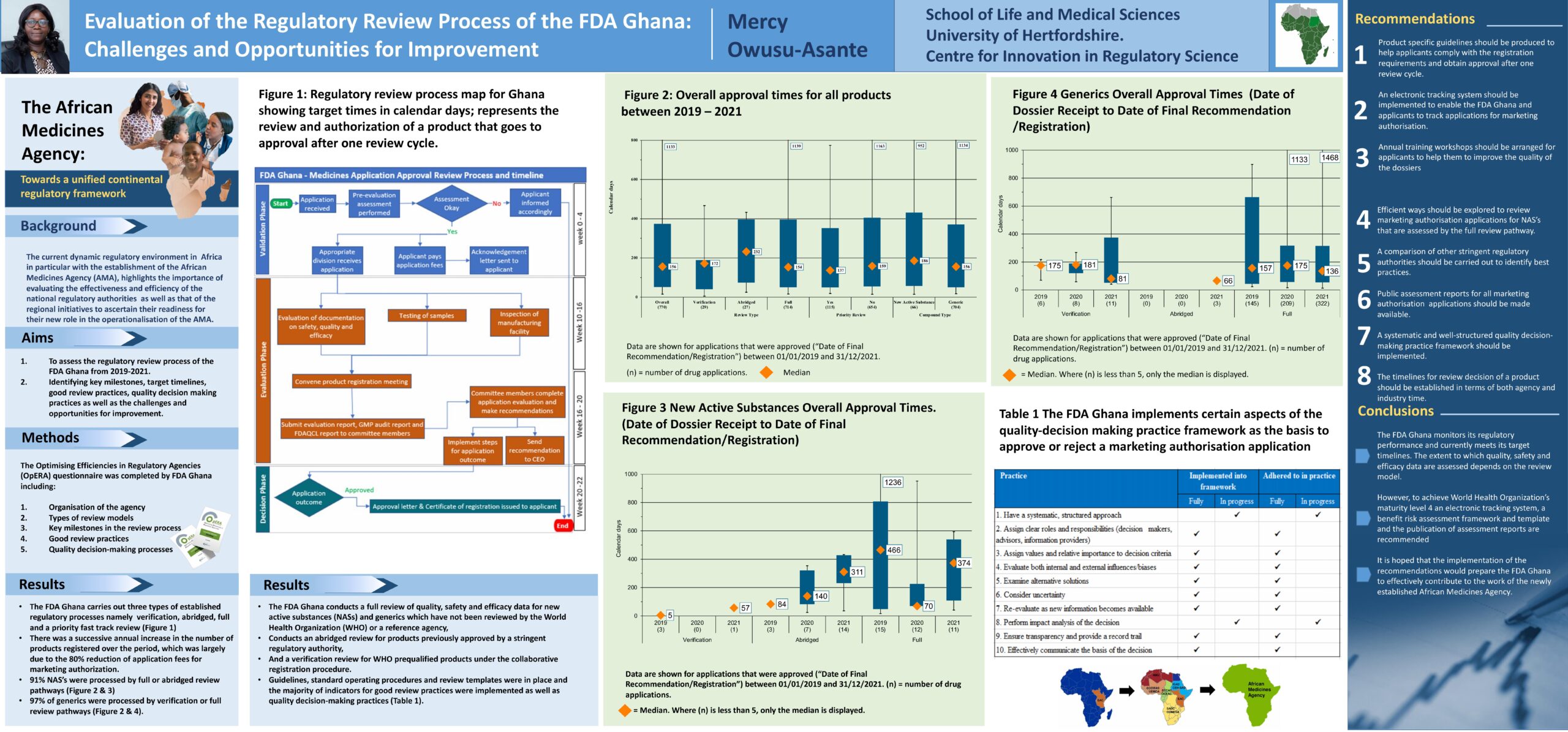During the DIA Global Annual Meeting 2023, Mercy Owusu-Asante developed and presented a poster in which she shared the results, recommendations and conclusions about the topic “Evaluation of the Regulatory Review Process of the FDA Ghana: Challenges and Opportunities for Improvement”
Background: The current dynamic regulatory environment in Africa in particular with the establishment of the African Medicines Agency (AMA), highlights the importance of evaluating the effectiveness and efficiency of the national regulatory authorities as well as that of the regional initiatives to ascertain their readiness for their new role in the operationalisation of the AMA.
Aims:
- To assess the regulatory review process of the FDA Ghana from 2019-2021.
- Identifying key milestones, target timelines, good review practices, quality decision-making practices as well as the challenges and opportunities for improvement.
Methods: The Optimising Efficiencies in Regulatory Agencies (OpERA) questionnaire was completed by FDA Ghana including: 1. Organisation of the agency, 2. Types of review models, 3. Key milestones in the review process, 4. Good review practices and 5. Quality decision-making processes
Recommendations:
- Product-specific guidelines should be produced to help applicants comply with the registration requirements and obtain approval after one review cycle.
- An electronic tracking system should be implemented to enable the FDA Ghana and applicants to track applications for marketing authorisation.
- Annual training workshops should be arranged for applicants to help them to improve the quality of the dossiers.
- Efficient ways should be explored to review marketing authorisation applications for NAS’s that are assessed by the full review pathway.
- A comparison of other stringent regulatory authorities should be carried out to identify best practices.
- Public assessment reports for all marketing authorisation applications should be made available.
- A systematic and well-structured quality decision-making practice framework should be implemented.
- The timelines for review decision of a product should be established in terms of both agency and industry time
Conclusions:
- The FDA Ghana monitors its regulatory performance and currently meets its target timelines. The extent to which quality, safety and efficacy data are assessed depends on the review model.
- However, to achieve World Health Organization’s maturity level 4 an electronic tracking system, a benefit risk assessment framework and template and the publication of assessment reports are recommended.
- It is hoped that the implementation of the recommendations would prepare the FDA Ghana to effectively contribute to the work of the newly established African Medicines Agency.

